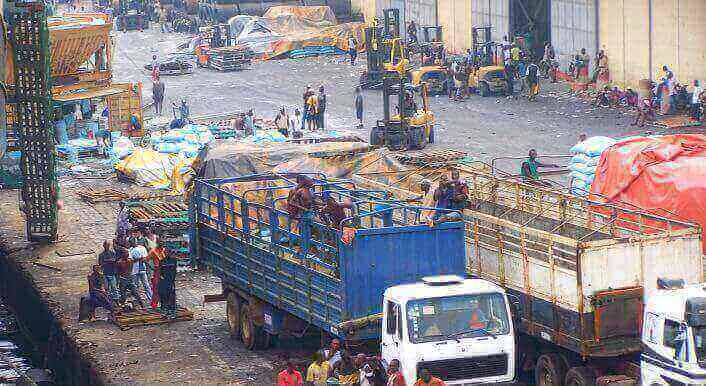Catch me if you can
Nicola Assisi is one of the most important drug brokers of the Italian ‘Ndrangheta mafia group, in a trade worth over thirty billion euros. Having inherited the most precious contact book of the trade, Assisi has been sending tons of cocaine from South America to Europe. This is the story of how he and his sons have been playing cat and mouse with law enforcement for two decades.
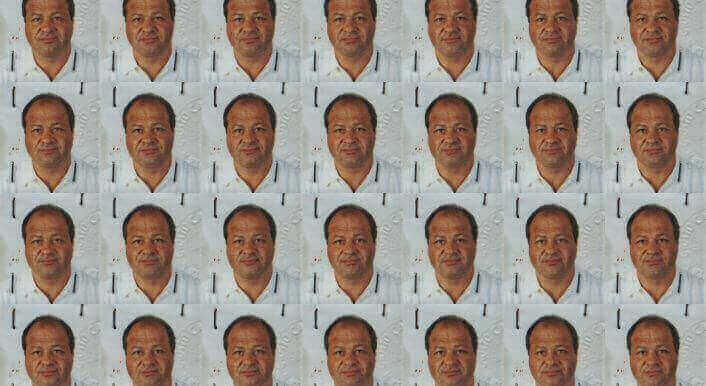
Caught in what seemed like a perfect trap, Rosario Grasso began to panic.
“What the hell are you forcing me to do“, Grasso texted on his mobile phone while struggling to keep one of his men tied to the ground. „They are saying they are innocent.“
Grasso, a member of the ‘Ndrangheta, one of the most powerful crime groups in the world, had come to collect 197 kilo of cocaine hidden between white bags in a container shipped to the Southern Italian port of Gioia Tauro. But inside the container, there was no trace of the drug, worth 20 million euros at street prices. Thoughts were racing through his mind. Did his own men steal it? Or had the sellers in Brazil dare to betray him, making him threaten and tie his own men to the ground in the middle of the night for no good reason?
Grasso and his group had worked hard for a smooth shipment. They had bribed an official in the port, nicknamed Il Porco, to allow them access to remove the cocaine from the container.
A picture of a small piece of wood appears on the screen of Grasso’s mobile phone, transmitted again by the broker who connected him to the sellers in Brazil. A container number is carved into the wood. MSC U356 5753. Grasso looks up and checks the number of the container he is standing next to. MSC U356 5753. He has opened the correct container.
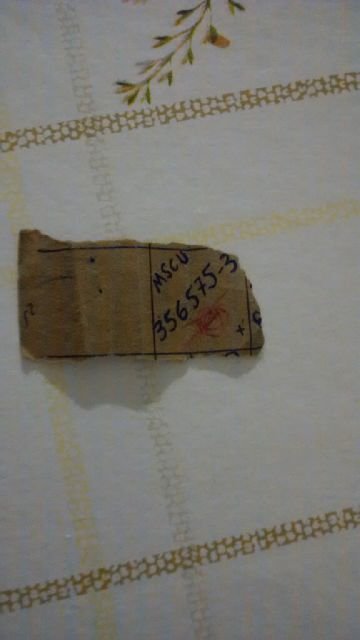
The cocaine smugglers transmit messages using small pieces of wood.
Guardia di Finanza
But there’s no cocaine.
“Tell them that I am the angry one, not them“, he texts his contact in Brazil. „It’s three am here, I raised half the world to do this, it’s three days that I haven’t seen my family, that I haven’t showered.“
Grasso returns to the port one more time the next day to search the container bag by bag but there is no trace of cocaine.
Large deals in South America
Cocaine trafficking is the primary source of the power of the ‘Ndrangheta. The mafia group, at home in the Southern Italian region of Calabria, is thought to control 40 percent of global cocaine shipments and is the main importer of cocaine into Europe.
The group is laundering the proceeds, estimated by some at over 25 billion euros per year through their companies in the real economy. They are thought to use Germany and Switzerland in particular, two countries in which anti-money laundering and anti-mafia laws are lax.
To shield themselves from prosecution, the ‘Ndrangheta bosses have set up a structure that separates the mafia hierarchy from the actual trafficking. Instead of exposing its own rank and file, the ‘Ndrangheta relies on dozens of brokers around the world. They speak multiple languages, work in white-collar jobs or travel through the Amazon jungle and climb the Andes mountain range to work directly with local drug cartels.
One of the most powerful brokers is Nicola Assisi who has been slipping through police hands for more than two decades. Having inherited the most precious contact book of the trade, he and his sons are thought to be operating from the heart of crime in Latin America.
The investigative journalism centers CORRECTIV and irpi.eu have investigated Assisi and his family based on court and corporate registry records as well as police interviews. This report reveals for the first time that the family has struck large deals with South American suppliers.
Enter the nephew
Nicola Assisi first came to the attention of the Italian police as ‘the nephew’. Born in the southern Italian city of Grimaldi in 1958, little is known about his early life. There is nothing to suggest he ever attended university. In spring 1997, investigators were tracking a few Calabrian brokers in the Costa del Sol region, in southern Spain, who were trafficking cocaine from Barcelona to Turin and Rotterdam.
“Traffickers used phone booths rather than mobiles back then“, remembers Gianni Abbate, a police officer who worked on the file in the 1990s. „We had managed to identify two phone booths in Turin, which were widely used by the drug ring and we wiretapped them.“
Before dawn on 16 May 1997, police followed a man who had made a phone call to arrange a meeting with ‘the nephew’. The ‘nephew’ turned out to be Nicola Assisi and police followed them to a meeting point in the countryside north of Turin where a truck loaded with 200 kilogram of cocaine was waiting for them.
“Finally we could put a face to Assisi. It was a breakthrough!“ says Abbate.
A small number of police officers cornered Assisi who tried the impossible. „He ran towards the police car and tried to steal it by knocking down an officer“, says Abbate. Eventually the officers overcame Assisi and arrested him. It was the largest seizure of cocaine in the history of Turin up to date.
Cat and mouse
At Gioia Tauro port, Rosario Grasso had been betrayed neither by his men nor the sellers in Brazil. The cocaine that he waited for in vain had been seized by police during transit in Spain. Police had refitted the container’s lock and allowed it to continue its route to Italy in an attempt to identify the smugglers.
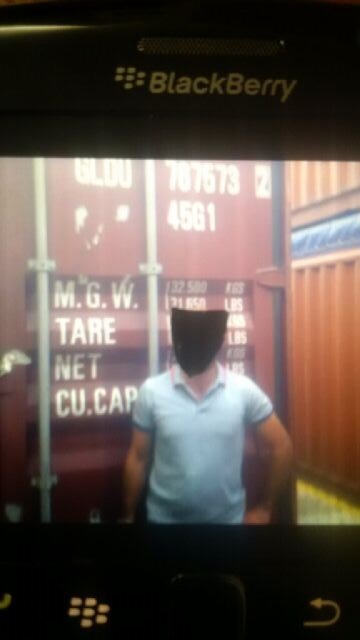
Rosario Grasso is seen next to the container at Gioia Tauro port. He sent this picture to Patrick Assisi, according to police.
Guardia di Finanza
In the ensuing brawl between the ‘Ndrangheta buyers and their sellers in Brazil, Nicola Assisi steps in to restore order. He settles the dispute and points out this could have been a police trick. „I am getting everybody new phones, these ones are a bit consumed“, wire intercepts read. In fact, Italian police had managed to intercept and crack the encrypted Blackberry messenger system of the Assisi family and their partners, edging closer to the arrest of a man they have wanted since those days in Turin.
As a first measure, Assisi’s son Patrick, who Grasso had been in touch via mobile phone while standing next to container number MSC U356 5753 at Gioia Tauro port, set up a trap himself to establish whether police were in fact tracking the traffickers. He sent an empty container with only a small load of cocaine to Gioia Tauro. But police let it pass in order not to compromise their surveillance.
The most precious book
The key turning point in Assisi’s career had come in 2002. Fours years earlier, the glacial pace of the Italian justice system had allowed him to leave jail after just one year while awaiting trial after his arrest in Turin in 1997. He had yet not been indicted and a judge refused to renew his remand.
Then, in 2002, Pasquale Marando disappeared. In his day, Marando had been the Ndrangheta’s most powerful drug broker. He had been the first to deal directly with the Colombian drug cartels in Latin America, cutting out middle-men and boosting his margins. Prior to this, the Costa del Sol in Spain was the middle ground where sellers from the Columbian drug cartels would sell to the ‘Ndrangheta.
Marando had been a mentor to Nicola Assisi since the early 1990s and the disappearance was a severe blow. Marando’s body was never found. He was likely killed in a feud in 2002. But Assisi turned the loss of his mentor to his advantage.
Investigators believe Assisi inherited the contacts of Marando’s most important drug suppliers in South America. Court records show that Assisi succeeded his mentor as a broker for two senior ‘Ndrangheta bosses in Turin who were linked to Marando’s family through marriages. Both were arrested last year after buying cocaine from Assisi.
In 2007, ten years after Assisi’s arrest in Turin, the court was finally about to issue its verdict. Under Italian law, a person cannot be arrested twice for the same crime.
“Exactly ten days before the final verdict sentencing Assisi to 14 years in jail, he escaped to the Costa del Sol and from there, we assume, to Latin America“, says Gianni Abbate, the police official who investigated Assisi in the ‘90s. Abbate’s Turin office is still filled with memorabilia of the old investigation.
Another six years were to pass before the Assisi business would come to the attention of the Italian police once more.
Mafiosi? An offence
Prosecutors seek to arrest both brokers and the ‘Ndrangheta masterminds of cocaine deals. But the brokers do not consider themselves mafiosi. „When we caught and interrogated Assisi in 1997 he admitted selling drugs to the mafia, but if you would call him mafioso he would get really offended“, said Abbate.
“Yet, do keep in mind the ‘Ndrangheta families respected him as a ‘man of honor’ „, he said using the term for a member of the mafia.
For brokers, the ability to buy cocaine directly from local producers is key to their success, Nicola Gratteri, one of the top prosecutors in Italy’s fight against the mafia, told correctiv.org. He said the best of them manage to buy a kilo of cocaine for as little as 1,200 euros from cartels in South America. They can offer to sell a kilo for 30,000 euros to the ‘Ndrangheta. Clans who don’t have access to them need to buy from rival clans at higher prices.
That means that the brokers who can buy directly from suppliers are the most sought after by the ‘Ndrangheta clans because they offer the best margins. Brokers such as the Assisis.
The Assisis are back
On a cold winter day in January 2013, Patrick Assisi is walking over a mosaic portraying a huge medusa. It is the entrance to one of Turin’s best fish restaurants, at the spot where an icy alpine stream flows into the Po, Italy’s largest river. He wears sneakers, jeans and a coat, the trade-mark outfit of Turin’s youth.
Patrick is greeted by representatives of some of the most powerful clans of the ‘Ndrangheta who are looking to buy from somebody directly in Brazil. Over fish, pizza and wine the men discuss the details of the deals. After the meal, the men walk out hugging each other. The deals are done.
This was the first glimpse Italian police had of the Assisis again. Patrick and his brother Pasquale had entered the business. It was immediately clear to them that Patrick who unlike his father was not a wanted man in Italy, was acting as Nicola’s arm in Turin by closing deals with some of the most important figures in the ‘Ndrangheta, including from the Aquino-Coluccio clan.
It was a successful meeting.
At large in South America
The Assisi business had grown bigger than ever, shipping cocaine from Latin America in large quantities. Investigators believe that the Assisis buy cocaine from the most important Brazilian drug cartel, the Primer Comando Capital (PCC), and the Colombian Cartels based in Peru.
The PCC are, along with Colombian and Mexican cartels, controlling the southern part of South America called Cono Sur, an area comprising the countries Argentina, Chile, Uruguay and Paraguay as well as the South of Brazil, an area local press has dubbed ‘Narcosur’. This is where Nicola and his sons, today both in their early 30s, are closing their deals. Court records show how they are bragging about cocaine bought in Peru, Paraguay and Brazil.
Paraguay is increasingly turning into an important transit country for the cocaine destined for Europe. Small family clans are organizing the shipments, controlled by the PCC from Brazil.
“I am here in Paraguay, for the phones, and for work“, Assisi told one of his partners in Turin in a chat intercepted by police. „I am preparing new stuff.“
In Brazil, the Assisis are all but invisible. Communications with their Brazilian suppliers is done in a secure way. The sellers provide the Assisis with a piece of wood, into which the number of the container and the code for the container lock are carved. The Assisis then send this information through encrypted mobile phones to their contacts in Calabria.
No more space to hide
Following Patrick’s meeting in Turin, Italian police were at the heels of the Assisis again. The family declared no income, yet lived a luxury life, driving BMW X3s and renting a villa in Portugal for 10,000 euro per month.
In fact, how to use the illicit drug money is a constant concern to drug traffickers. The drug ring led by the Assisis used couriers to send the proceeds to a gas station near Turin, where money couriers would pick it up and bring it to Brazil, hundreds of thousands of Euro at a time.
Still, Assisi’s wife, who according to investigators is acting as the group’s cashier, once complained to her son Patrick that their house in Turin had no more space to stash away more money. When police raided the villa, they found four million Euros.
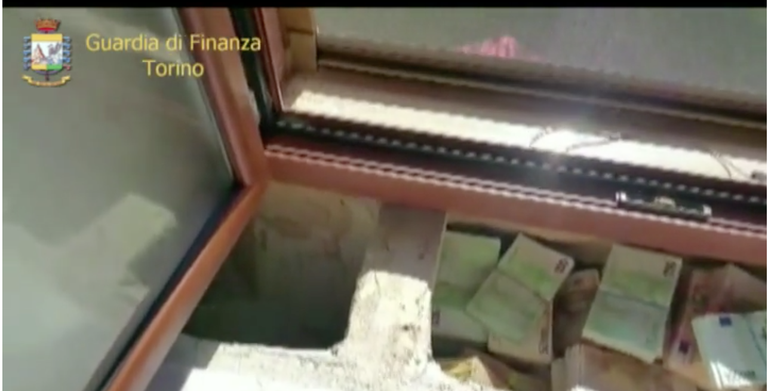
No more space to stash away money in the Assisis’ villa in Turin.
Guardia di Finanza
Much of the police work centers on breaking into the communications system of the traffickers. Italian police finally succeeded in spring 2014. By wire-tapping the phone of a close confidante of the Assisis in Italy, they were able to identify the group’s phones and the devices’ security pins.
From then on, police dealt several blows to the traffickers, seizing half a ton of cocaine sent by the Assisis over four months that year. On 27 August 2014, Nicola Assisi is arrested for the second time in his life. Arriving from Brazil and using the fake Argentine identity of ‘Javier Varela’, customs officers at Lisbon airport were waiting for him.
It is possible that Assisi had taken the risk to travel to Europe to lay the ground for a new way of shipping the cocaine. Police records show the group planned to use a Falcon 50 long-range private jet to fly the drugs to Europe, using the landing strip of a flight school in Germany. The drugs were then to be trucked to Italy. It is not known whether this plan was ever implemented.
While the traffickers know no borders, the judicial cooperation within the European Union is patchy at best. After Assisi’s airport arrest, a court in Lisbon put him under house arrest. While Italian authorities scrambled to have the extradition approved by a local court, Assisi convinced the court to free him of his electronic ankle monitor and disappeared again.
And in the end, the trap laid by Italian police at Gioia Tauro port backfired. It convinced the Assisis to switch to more reliable data encryption. Patrick bought Sony smartphones with an Android encrypted chat that until today has made it impossible for the Italian authorities to intercept the traffickers’ communications.
One last trace
CORRECTIV attempted to reach the Assisis as well as Rosario Grasso through their lawyers. None of them responded to the questions.
Grasso is in jail awaiting trial. Il Porco, the corrupt customs or police official at Gioia Tauro port, has still not been identified by Italian police. Nicola and his sons are active in Brazil where Nicola’s wife is also thought to be hiding. It is not known how Nicola looks like today. Passport pictures that he has used show a friendly but plump face.
Patrick is now also wanted by Italian police. Just last year, he registered a small trading company called Poli Pat 9 at a law firm in Ferraz de Vasconcelos, a poor area of Sao Paulo, corporate registry obtained by CORRECTIV and irpi.eu show. The area is believed to be a money laundering hub of the PCC drug traffickers.
This is the last trace the Assisis’ have left.
This investigation is a cooperation between CORRECTIV and IRPI.eu with the support of the Flanders Connect Continents Grant. Additional reporting by Giuseppe Legato in Turin, Juan Carlos Lezcano of ABC in Asunción, Micael Pereira of Expresso in Lisbon, Aramis Castro of Convoca in Lima and Alana Rizzo in São Paulo.
Editor: Frederik Richter

